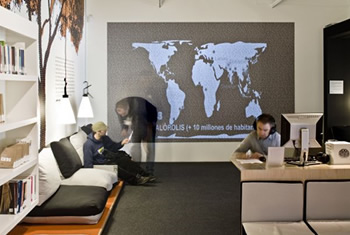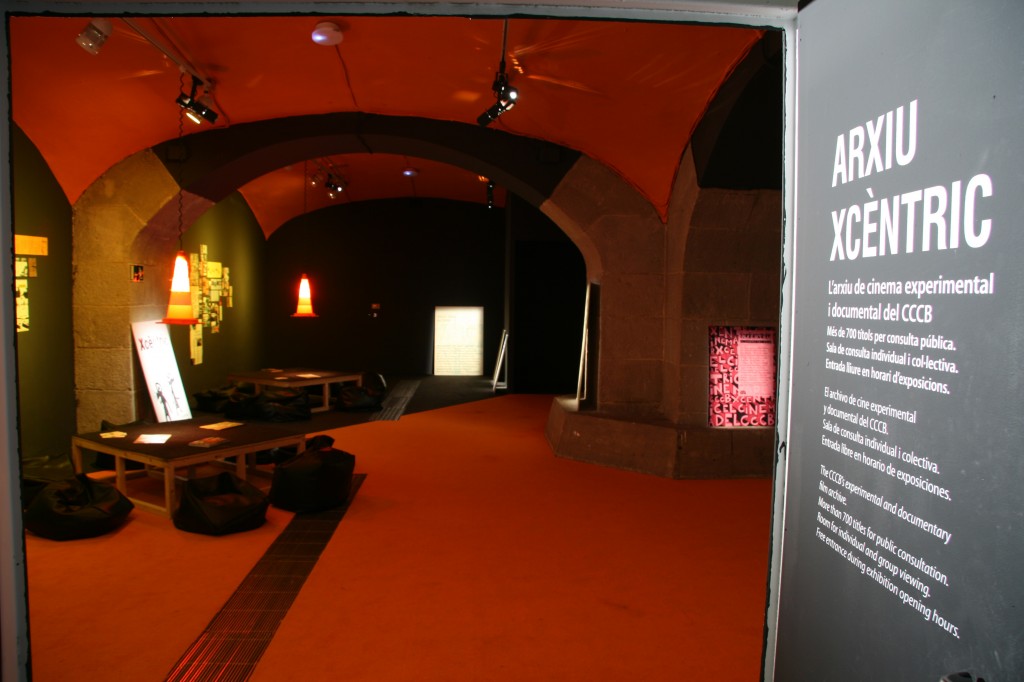Before setting off on holiday and switching off the machine 2.0 (we’ve programmed a series of Tweets and posts on our Facebook page, and our website will be constantly updated so that you don’t forget about us during August, but we’ll be on the beach!), we would like to review the best activities that have taken place at the CCCB during the year so far.
We have asked the CCCB’s programmers which have been the best moments of the year worth remembering and recovering. Debates, concerts, exhibitions, articles, authors that have left their mark and that we bring together in a playlist of videos and recommended texts. So, make yourselves comfortable, get your computers fired up and take note!
You will be able to follow the contents of this playlist on Twitter and Facebook with the hashtag #repàsCCCB. The other summer hashtag will be #Gandules13, where you will be able to follow all the news on the CCCB’s cinema al fresco.
Debates
- The top speaker of the year at the CCCB, octogenarian Zygmunt Bauman, packed out the CCCB’s hall and auditorium with his talk about education. Bauman took part in the series of “In Common” debates, which allowed us to hear some excellent talks regarding the common goods that we ought to protect in times of crisis. Lydia Cacho talked about human rights, Marina Garcés about commitment and Josep Ramoneda about freedom. All the debates and interviews are available here.
- Innovation and scientific research is one of the CCCB’s lines of programming. This year, prominent medics and scientists have visited the CCCB to talk about advances in the investigation of diseases such as cancer, AIDS, Down Syndrome, and autoimmune diseases of the brain. Also not to be missed are the interviews with the speakers,a good science communication resource.
- The “Off Programme” series is a proposal from the CCCB’s audiovisuals department that combines the screening of a documentary on a social theme with a debate on the current state of affairs. Don’t miss the debates on food health and banking ethics.
- The first Data Journalism and Open Data conference in Spain was held at the CCCB and featured some of the professionals that are best acquainted with and practice this new form of focusing journalism: John Burn-Murdoch, Mar Cabra, Michael Bauer, Marc Garriga Karma Peiró and Manuel Aristarán.
- Ex-FC Barcelona player Lilian Thuram and writer Tahar Ben Jelloun held an interesting dialogue on racism in football. Their testimonies show that social prejudices are still very much present in spheres such as the media, sports, and schools.
- George Soros, one of the most prominent and controversial voices in finances and the international economy visited the CCCB to offer his view of the economic and institutional crisis in Europe. His talk is available in English along with its translation into Catalan.
Exhibitions
- Chosen as the best exhibition of 2012 by the ACCA, “Paral·lel Avenue, 1894-1939. Barcelona and the Spectacle of Modernity” recovered the memory of a singular street and a way of understanding culture and entertainment that lay forgotten for years. The guided visit by one of the curators Xavier Albertí is a good guide for remembering the route taken by the exhibition. You can also travel to the Paral·lel Avenue of the early 20th century if you follow the parallel routes. If you like cuplé, you must not miss this video. Another interesting document on the tawdrier side of Barcelona: the Soy Cámara programme about Paral·lel Avenue.
- On the tenth anniversary of his death, Roberto Bolaño has received well-deserved public recognition from various institutions. That of the CCCB materialised in the exhibition “Bolaño Archive” and in activities paying tribute to him during the Kosmopolis literature fest. Of the materials available about Bolaño online, we especially like the promotional video “Tirarse de los pelos”, the staged reading of the tale El Policía de Las Ratas (Police Rat) and the interviews with Bolaño’s widow, Carolina López and with the writer A.G.Porta. The exhibition catalogue is also a good read for the summer, with articles by Vila-Matas, Javier Cercas and Olvido García Valdés, among others. And if what you want to do is recover what Internet users said during #Bolaño Day, do not miss this post!
- “Pasolini Roma” is the first major European exhibition dedicated to the Italian author. It can be visited all summer until 15 September, but if you are feeling lazy and prefer to stay at home, we recommend you visit the project website, a map with online itineraries planned out on the map of Rome or the blog “The poetics of margins” where you will find interviews and articles with curious facts and the work in progress of the exhibition.
Music and festivals
Kosmopolis 2013
The amplified literature fest Kosmopolis left us with some unique moments: the conference with two of the masters of the British comic, Dave Mc Kean and Paul Gravett; Jorge Carrión and Nacho Vigalondo starring in a fun battle of the series; David Carabén and his show This is not a love song and two of the Third Culture science communication events, The Hunting of the Boson and Martian Time-Slip. On the Kosmopolis website you can check out all the multimedia materials generated by the festival.
Soy Cámara, the CCCB’s television programme is broadcast live (on TVE 2, one Friday each month) and it also an online programme. All the episodes can be viewed on the CCCB’s web. We wouldn’t know which episode to recommend to you! They are small audiovisual treasures lasting 25 minutes that tackle themes related with the CCCB’s programming.
Innovation in the cultural sphere
The renewed CCCB Lab blog proposes a series of quality, in-depth reads on themes related with cultural innovation. They have started a series of articles on how the Internet is changing our lives, have committed to articles on scientific communication (The Elementary Bestiary and On the Multiplicity of Intelligences) and have continued reflecting on how culture changes with articles such as #museumnext 2013: The crisis (of museums) as an opportunity, Analysing the virtual audience, The new productive ecosystem: personal, distribute and open production, City, space and people who do things, The playful attitude as the basis of the creative process, and The revolution of the commons. Unmissable summer reading!
We look forward to seeing you again in September, with a new programme and new cultural contents. Happy holidays!









